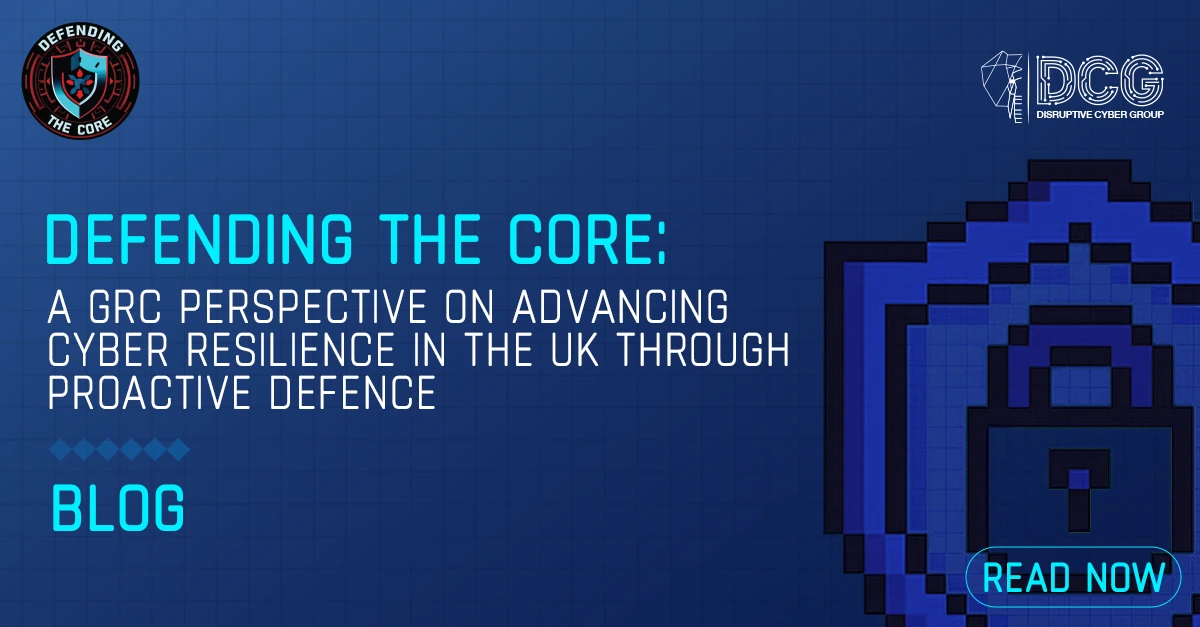
In 2025, cyber threats for UK SMEs continue to become more complex, resulting from rapid digital transformation, increasing regulation and increasingly sophisticated threat actors. While the headlines often focus on large-scale breaches, small and medium-sized enterprises are, in fact, disproportionately targeted.
43% of UK businesses experienced a cyber attack in the past 12 months, with 70% of those being SMEs. Yet, many still rely on fragmented or outdated cyber security approaches.
As a cyber security delivery partner for growing UK businesses, we've created this strategic playbook to help SMEs prepare for, and stay ahead of emerging threats in 2025.

Cyber security is not one-size-fits-all. Before investing in tools or services, SMEs must conduct a comprehensive risk assessment. This includes:
This helps SMEs visualise their attack surface to build a prioritised action plan and ensures you're investing where it matters most.
Phishing remains the top initial attack vector for UK SMEs. But knowing it's a threat isn't the same as being ready for it.
Too often, businesses run once-a-year training with limited engagement or follow-up. Instead, the 2025 approach focuses on ongoing behavioural transformation with regular simulations, context-based learning, and personalised coaching.
With hybrid work the norm, endpoint and identity protection are your frontline defences.
In 2025, we recommend UK SMEs focus on:
With GDPR enforcement tightening and frameworks like Cyber Essentials Plus becoming prerequisites for contracts, compliance is more than a checkbox, it's a credibility marker.
Whether you're bidding for public sector work or building trust with clients, having a well-documented cyber security framework improves both resilience and reputation.
According to the UK government, 69% of businesses say cyber security is a high priority, but only 14% have reviewed their supply chain risks.

Most SMEs still lack a tested incident response plan. In 2025, that's no longer optional. Ransomware groups now automate discovery and lateral movement, meaning every minute counts.
A well-prepared SME should have:
Cyber security isn't a product, it's a capability. And capabilities evolve.
Rather than stack-point solutions, SMEs should work with a delivery partner who understands how to scale security with your business. At DCG, we don't just plug gaps - we help you enhance your security posture, from training and detection to response and beyond.

As cyber risk continues to climb in 2025, UK SMEs don't need bigger budgets, they need smarter strategies. That means aligning cyber security with business goals, embedding it into culture, and treating it as a long-term investment, not a fire drill.
Need help getting started? Talk to the team at DCG today.

Zero Trust Evolution: Adapting to Cloud, Microservices & Compliance

Navigating UK Cyber Security Regulations: A 2025 Guide for Businesses

AI and Cyber Security: The Hype vs. Reality for the Mid-Market

Defending the Core - A GRC Perspective on Advancing Cyber Resilience in the UK Through Proactive Defence
Join industry leaders on cyber projects to create a global impact and ensure a secure digital future.